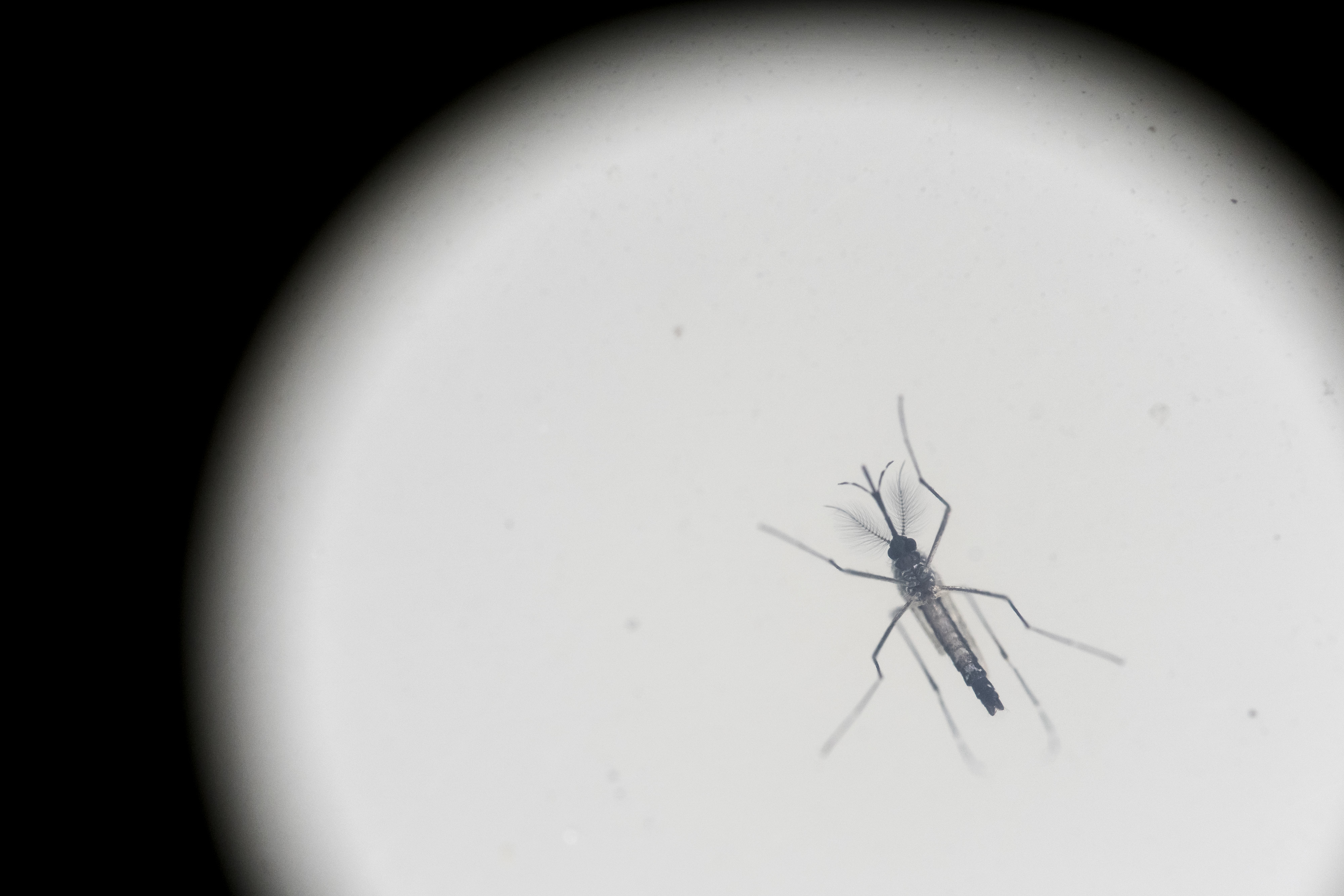![Baby with Zika virus born in New Jersey [video : 85230930]](http://videos.usatoday.net/Brightcove2/29906170001/2016/06/29906170001_4922500510001_4922465535001-vs.jpg?pubId=29906170001)
![AP BRAZIL ZIKA VIRUS I BRA [image : 84903928]](http://www.gannett-cdn.com/-mm-/02c3127de18ca3ef8f291c007f7a604e49f49867/c=440-0-3560-2667/local/-/media/2016/05/25/USATODAY/USATODAY/635997693517379726-AP-BRAZIL-ZIKA-VIRUS-82105461.jpg)
A baby born with Zika-linked microcephaly remained hospitalized in northern New Jersey on Wednesday with the first such birth defect case in the Northeast and the third in the nation, officials at Hackensack University Medical Center confirmed.
Doctors delivered the baby girl at 36 weeks on Tuesday after the mother, who recently arrived in the U.S. from Honduras, was admitted to the hospital's high-risk unit, Dr. Manny Alvarez said. The child also has intestinal and visual issues.
"The baby apparently had been not developing properly over the last month or so," said Alvarez, who is also senior managing health editor at FoxNews.com. "This patient came in on Friday for the first time ... and my team decided that it was appropriate now to deliver the baby."
Microcephaly is a birth defect in which babies are born with abnormally small heads and incomplete brain development. Babies with the defect often have a range of problems including developmental delay, intellectual disability, problems with movement and balance, hearing loss and vision problems. The effects and severity of Zika-linked microcephaly become more apparent as children grow older.
The 31-year-old Honduran mother, who was not identified, showed no symptoms in Honduras other than a rash, FoxNews.com reported. Doctors in her home country suspected the fetus had cranial complications. It wasn't until she was admitted to the high-risk unit that doctors determined the fetus showed signs of severe microcephaly.
![150 health professionals call for Olympics in Rio to be postponed due to Zika [oembed : 85234098] [oembed : 85234098] [oembed : 85234098] [oembed : 85234098] [oembed : 85234098] [oembed : 85234098] [oembed : 85234098] [oembed : 85234098] [oembed : 85234098] [oembed : 85234098]](/Portals/_default/Skins/PrestoLegacy/CommonCss/images/smartembed.png)
![CDC: 1% to 13% of Zika-infected babies could have microcephaly [oembed : 85234160] [oembed : 85234160] [oembed : 85234160] [oembed : 85234160] [oembed : 85234160] [oembed : 85234160] [oembed : 85234160] [oembed : 85234160] [oembed : 85234160] [oembed : 85234160]](/Portals/_default/Skins/PrestoLegacy/CommonCss/images/smartembed.png)
In a statement, the hospital said the mother is "receiving exceptional care during this difficult time and we appreciate everyone respecting the mother’s privacy."
The Centers for Disease Control and Prevention confirmed in February that a woman gave birth in Hawaii to a baby with severe microcephaly. Dr. Abdulla Al-Khan, another of the doctors caring for the Honduran woman, told Fox News another child was born with the disease somewhere in the South.
Zika is transmitted primarily through the bite of an infected mosquito, though it can also be spread through blood transfusions and sex. The virus arrived in Brazil one year ago. Earlier this year, the World Health Organization declared Zika a public health emergency of international concern. Scientists have detected Zika in 39 countries and territories in the Caribbean and Latin America, according to the Pan American Health Organization.
The Centers for Disease Control and Prevention says there are more than 300 pregnant women in the U.S. with "laboratory evidence of possible Zika virus infection." Although it's not clear what percentage of infected pregnancies result in microcephaly, a recent CDC report estimated the risk at up to 13%.
Contributing: John Bacon


